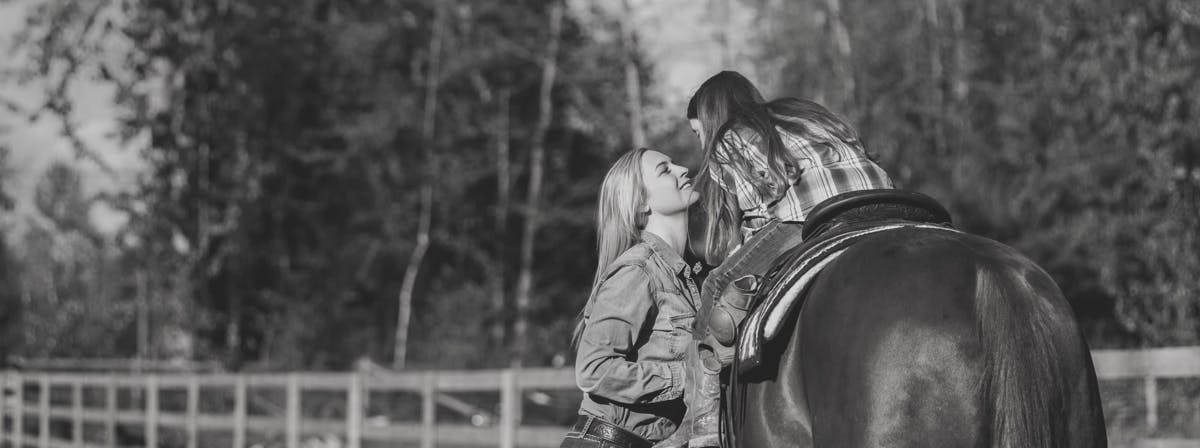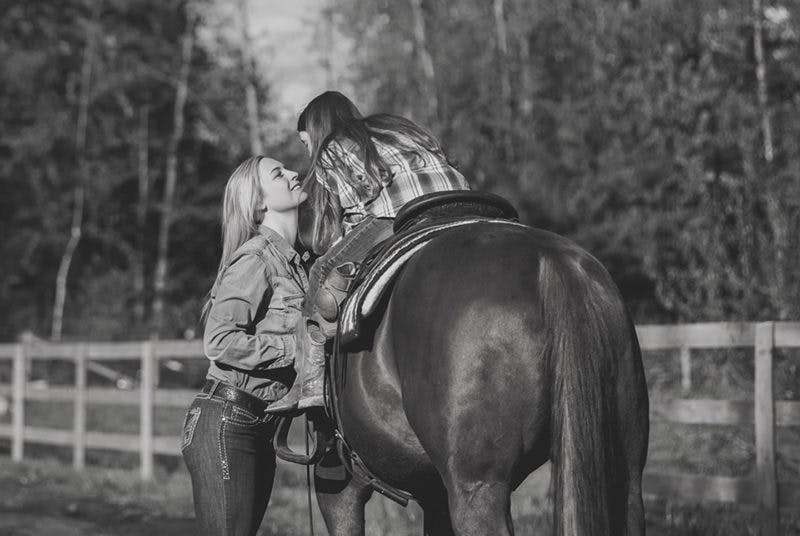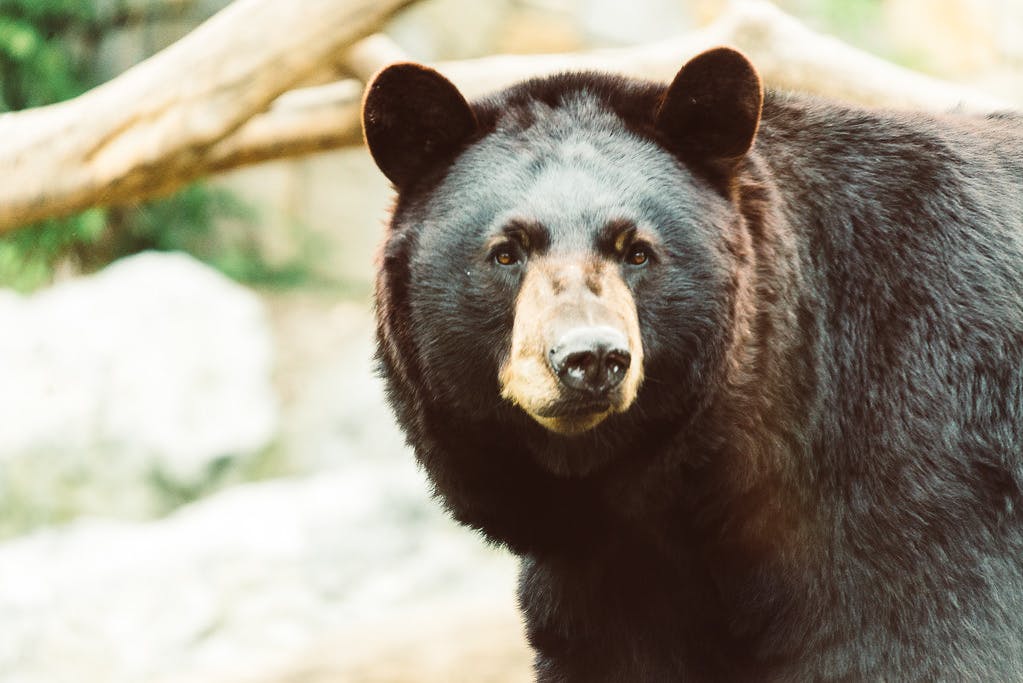Spring is just around the corner! Like many, you’re probably ready for the thaw, and the chance to get back out enjoying your country lifestyle. You’re not alone. There’s someone else that’s very, very excited for the start of spring: your local, (usually) harmless bears!
That’s right, with spring comes the end of hibernation for the many bears that call British Columbia home. And while bear encounters are relatively rare, and almost all of them end peacefully, it’s important to prepare yourself, your family, and your property for when those bears open their eyes and begin to roam out of the den.
While the timing varies based on type of bear, the location, and the current weather conditions, many male bears will start emerging from their dens in late March or early April. Not far behind them are the females with their newborn cubs. Their mission (besides a nice long stretch) is simple: find food. With upwards of 5-7 months spent in hibernation, adult male bears and nursing female bears lose a significant portion of their body weight. Their aim is to regain this weight ahead of the summer mating season.
And for anyone living amongst the nature and the bears, this time of year brings the highest likelihood of you encountering a bear on your property. With an insatiable appetite, springtime bears are on the hunt for anything and everything to eat. That is why it’s not too uncommon to hear of bear sightings in densely populated neighbourhoods this time of year. With a starving family to feed, and vegetation that has not fully blossomed yet, bears will travel almost anywhere to find food.
So, what can you do to minimize the chances of a bear wandering onto your property in search of food? Let’s look at three key areas of prevention:
Bear-Proof Your Garbage & Compost
While to humans it may just be stinky garbage, to bears those garbage bags and cans out by the shed are as tasty as it gets.
Anyone living in or around bears should take extra precaution when it comes to their garbage and recycling. Both brown (Grizzly) and black bears have a keen sense of smell, and have been known to topple many a garbage can in search for finding scraps at the bottom. To prevent this, you can take a couple of precautionary steps. First, you should bear-proof any garbage cans or sheds where you keep your waste. There are plenty of bear-proof cans available to purchase online or at your local farming supply/outdoor store. Or if you’re feeling handy, many regular heavy-duty cans can be made bear-resistant with a few simple modifications. Just type “how to bear proof your garbage can” into YouTube and watch one of the helpful DIY videos.
In addition to bear-proofing your garbage, you want to be sure your compost pile is as unappealing as possible to bears. Place the pile far away from your garbage and other food sources, so as to minimize the “buffet effect”. Mix fresh scraps in deep with old compost so that new food is not laying out on top. And for those willing to spare a few kitchen spices, many recommend concocting a slurry of water and various “harsh” spices like turmeric or chili pepper to mix in with your compost, reducing the chances that the smell and taste will appeal to bears.
Watch Your Animal Feed
With your garbage and compost now bear-proof, it’s time to think about your animal feed. Living on acreage, there is a good chance you have some animals roaming around. Feed for cattle, chickens, birds, and even dogs/cats all make for a tasty bear snack, so be sure you take proper precaution.
If storing your feed in an open barn/shed, be sure to create containers that make it difficult for the bears to smell and open. A fresh-set of bear-proof garbage cans can work here too. Just dump your feed into the can and lock it up tight, being sure to sweep up any remnants that may have spilled out onto the floor (remember that keen bear sense of smell).
And for the bird lovers out there, this is the time of year where you may want to consider taking down your bird feeders. Black bears have been known to eat their way through an entire feeder in a matter of minutes, so it’s best not to tempt them by hanging a bunch of seed. Wait until it’s a little bit closer to May and June before placing and filling your feeders.
Take Care of Natural Vegetation
While bear-proofing garbage and animal feed is often the most discussed portion of bear control, these should not be your only concerns. Natural vegetation should also be carefully examined and removed if necessary.
In a 4-year study conducted in Alberta’s Bow Valley, it was shown that nearly 90% of human encounters with bears were the result of natural vegetation. While grizzly bears head towards the rivers in search of fresh fish, black bears are primarily vegetarians, and love to feast on seeds and berries. In fact, an adult male bear can eat upwards of 100,000 berries in a single day!
Buffaloberries are one of the most common sources of food for springtime bears. If you have any on your property, consider removing them so that you don’t attract hungry bears. Bears are very skilled at remembering food sources, so if any lock in on your property as a place to chow down on berries or other fruit-bearing plants, it won’t be long before they return and bring their friends.
Now, even with all this prevention work, there may come a time that you do encounter a bear on your property. If so, there are a few things to remember. The British Columbia Parks Service has put together a short, informative guide on what to do during a chance encounter with a bear. You can read their guide here. And like you would if you were camping or hiking, it’s always a good idea to carry a can of bear spray with you while out roaming your property.
With spring in the air and hibernation season coming to a close, it’s important to take the necessary precautions to keep your acreage bear free. Remember to bear-proof your garbage and your compost, keep animal feed locked up tight, and take care of any natural vegetation local bears might feast on. With these steps, you can rest easy knowing that those hungry bears aren’t going to find any good springtime meals on your property!



